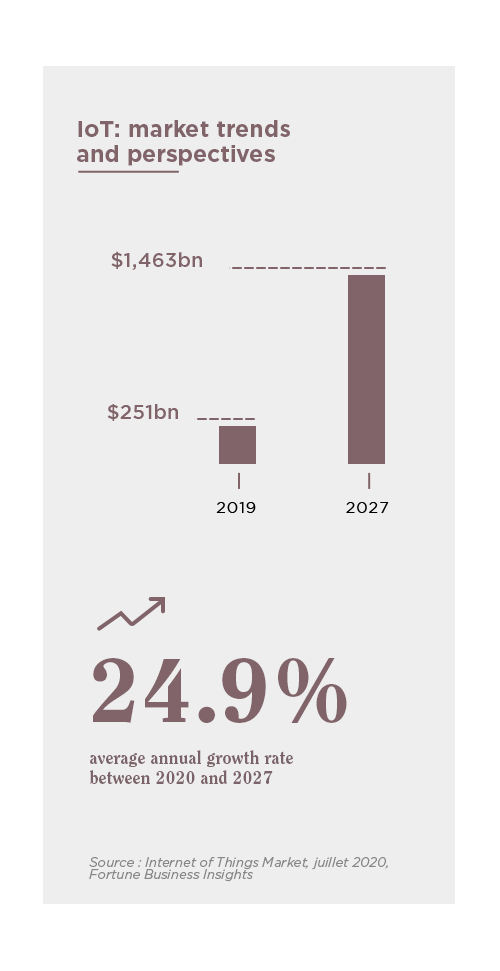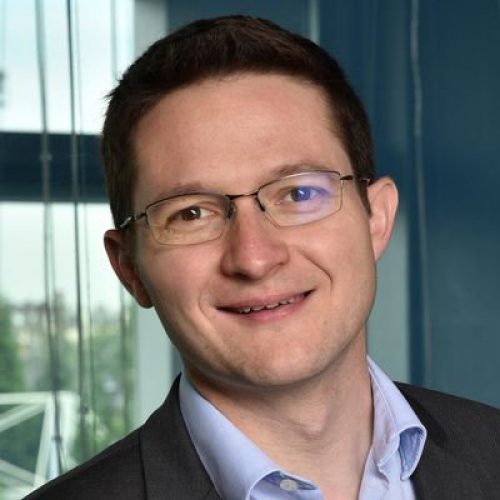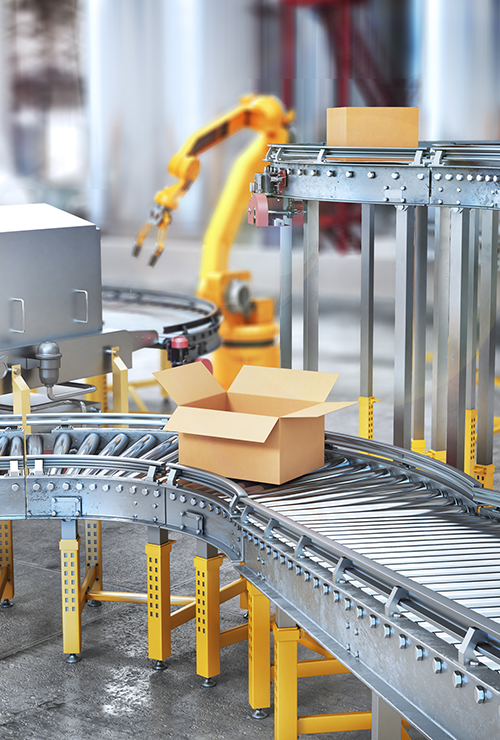05. THE ECOLOGICAL TRANSITION
Rexel in the starting blocks
-
“The ecological transition is a real driver for Rexel, and it will be fueled by the recovery plans announced around the world”, explains Bertrand de Clermont Tonnerre, Group Sustainable Development Director.
Energy efficiency is at the core of the solutions that Rexel offers. In 2019, its sales of energy efficient and renewable energy products reached €1.6bn. Rexel encourages its customers, as well as its suppliers, to choose energy efficient products and solutions.
The Group helps contractors promote energy savings by offering them energy auditing tools and digital apps designed to streamline the deployment of energy efficient solutions. For example, the Esabora app allows them to model buildings and position electrical installations without needing CAD expertise.
Rexel helps its customers manage their construction works efficiently and responsibly by reducing and monitoring their GHG emissions with on-site deliveries, reducing nuisances by managing deliveries from all their suppliers, streamlining different flows to and from a work site (via kitting, on-site branches), etc. -
Rexel also contributes to the circular economy at work sites, recycling all types of electrical equipment, at its branch or at its customers’ sites, recycling and reusing other equipment and materials or eliminating over-packaging.
The Group offers a broad range of eco-efficient products for the construction, renovation and maintenance of buildings, as well as energy consumption management tools.
Rexel encourages its suppliers to adopt energy-efficient solutions. The Group evaluates their ethical, social and environmental performance on a regular basis. Since starting this process, more than 330 suppliers, representing 67% of the Group’s direct purchases, have received an evaluation questionnaire via the EcoVadis platform. Rexel is ranked “Gold” on the same platform.

The energy transition
Rexel operates in a market driven by positive long-term structural trends.
Three questions for Christian Roche, Director of the IoT Business Unit, for Rexel France
Where are we today?
Even though this market has not yet reached full maturity, we are experiencing strong growth across our connected products and services offering. Energeasy Connect is our solution designed for the smart home market and it has greatly benefitted from this momentum thanks to the evolution of the new home market: today, real estate developers and single-family home builders systematically want to include a “smart home” solution in their constructions. For them, it isn’t just a matter of meeting a clearly expressed customer need—to have access to a range of complementary services in addition to controlling the home’s features. It also enables them to offer a higher use value and comfort level at a lower cost in regard to the overall investment. Our priority is to integrate the Energeasy Connect ecosystem right from the design stage in order to make the buildings connectable or connected depending on the offering level or the value proposition made by the developer. With its modular offering directly integrated into the electrical board, Energeasy Connect is positioned as the most representative of this market.
The retrofitting market also benefits from opportunities linked to the evolution of smart objects. These offers can be interoperable natively or via gateways enabling them to use the existing equipment. We can now turn an existing installation into a connected one without renovation works and at a relatively low cost.

Electric vehicles
and charging stations
The share of rechargeable electric vehicles (including hybrids) within the overall global sales of new passenger cars should grow from 8% in 2019 to 52% in 2030 (source: Who will drive Electric Cars to the Tipping Point?, BCG, January 2020).
City, transportation and building planning are among the main challenges to the large-scale deployment of electric vehicles.
With an average autonomy of 140km, the charging station issue is crucial for the users of this type of vehicle. Moreover, needs vary depending on use: while highway infrastructures require high power, capable of charging a vehicle in under an hour, commercial buildings only need average power and residential buildings need normal power. Rexel has positioned itself on this market in order to assist the installers of these new types of equipment.
The Group thus offers full packages, sized according to the number of vehicles that need to recharge, using traditional or solar energy. Additional services for users enrich these offerings, such as localization, charging station reservation, or online payment.



Three questions for Grégoire Morineaux, Industrial Market Director Rexel France
What are Rexel’s strengths in the industrial market?
Our strengths are specialization, an omnichannel approach, and technical expertise. With a dedicated structure for our industrial clients staffed with around 125 specialized salespeople, our customers have daily contact with their counterparts who understand their sectors’ and businesses’ challenges. Along with these specialized advisers, our webshop has become a market reference, offering specific contents by customer and business segment, such as maintenance or safety. Finally, our technical expertise has deepened. We have a team of 80 technicians, experts in industrial processes, whose skills go beyond automatic control systems, toward industrial networks, cybersecurity, robotics, and the entire industrial digitalization chain, from intelligent sensors to Edge or Cloud computing software solutions. All this complementary expertise is aligned with the digital industry trend.

-
Industrial automation
In China, where the Group is particularly well positioned in the industrial automation market, Rexel China has developed the IMC (Industry Management & Control) solution, which collects, analyzes and displays production data to measure and control plant performance. Its main advantage is its universality: it works regardless of the brand of the automation equipment as long as the products are equipped with readable sensors.
-
More recently, Rexel China took a further step forward with the development of eIMC, a more powerful IMC platform offering amongst others integrated energy management solutions, available standalone and in the Cloud. Among its most recent users is one of the world’s leading optical fibre manufacturers, who is leveraging eIMC’s capabilities in remote hardware Track & Trace, -maintenance, -management and Edge Computing.
Building Information Modeling
-
BIM (Building Information Modeling) is a new building design technology, which covers all of its various aspects and stages. It takes the form of a digital model that provides a virtual preview of the real building, complete with all the data linked to it, and enabling flow optimization. The BIM market is now growing by 10 to 15% per year in France and shows an adoption rate of 50 to 60% with the major building constructors.
-
To support its customers’ skill improvement in this market, Rexel accompanies them throughout their projects, offering them numerous tools at each step of the process: digital design support, work site organization and management assistance, connected solutions for energy consumption management, etc.



